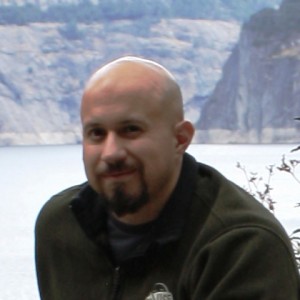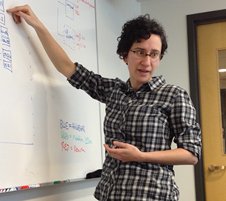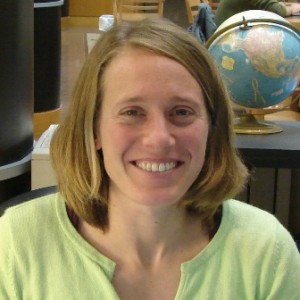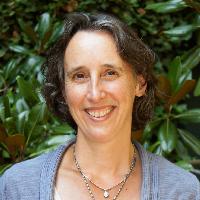Invitation to Apply for DSPS Fellowship
We are getting ready to invite applications for the Digital Scholarship Fellowship position. Hosted by the DSPS unit the fellowship program aims to provide opportunities for CUL staff to expand their skills and experiences in developing, delivering, and assessing digital scholarship services. It supports the CUL objectives of “empowering staff to explore gaps in their areas of expertise” and “promoting flexible staffing among the units.” This will be the third year of the program.
DSPS Fellowship Ideas
Here are some examples of fellowship projects to consider:
- Work with a campus-wide group to survey AV preservation needs across the University system. Conduct stakeholder interviews and gather critical data with regard to number of items, condition, value. Contribute to pilot project to digitize/preserve small number of AV items at high risk. Contribute to report/recommendations to Executive team.
- Sharpen your user experience (UX) assessment skills by contributing to the evaluation of CUL’s digital collection and repositories (e.g., eCommons, visual resources, etc.) to review their practical aspects such as utility, ease of use, and efficiency. How are such services and systems meeting the actual needs of our faculty and students? How do they fit in their daily work flows to support their research and studies
- arXiv’s operation depends upon intensive, daily interaction with over 130 subject experts around the world. We would like to begin re-thinking this interaction and design new and/or improved tools for our subject experts to use and need a coordinator to manage the requirements gathering phase of this effort (analyze current processes and test ideas with subject experts and local arXiv administrators).
- There are many CU publications that have been scanned by HathiTrust, but they cannot be made open access until the departments that created and published them agree to a release and specify what CC license should be used. We need someone to shepherd through the process of talking to departments about opening their publications.
- Collaborating with the Graduate School, help us address issues and policies related to the collection, management and dissemination of Cornell graduate student theses and dissertations (including increasing the awareness of graduate students and faculty on open access issues).
- Design and conduct a comprehensive survey of CUL digital assets – characterizing them in terms of aggregate size, content type, basic preservation need, and stakeholder requirements (access, discovery, rights, etc.) The intent would be to triage these towards various preservation solutions as needed based on the needs of the materials involved.
- Join the DSPS staff in a NEH-funded project to create a preservation and access framework for the complex born-digital media art objects in the Rose Goldsen Archive of New Media Art. Assist in creating informed use-case scenarios for interactive media artworks, based in a broad investigation media art archives’ current users and their research needs.
These are just some examples to illustrate the nature of fellowship projects. Other ideas related to the DSPS programs and goals are welcome. Information about the DSPS program is available at http://www.library.cornell.edu/DSPS
DSPS Fellows
During the last two years, DSPS has been very fortunate to host four excellent fellows, all very motivated, creative, and resourceful. We are grateful for their contributions and hope that they found the experience useful and gratifying. They are available to talk with interested parties about their fellowship experiences.
Here is a brief description of their fellowship projects:
Jim DelRosso, Hospitality, Labor, and Management Library
 Jim’s fellowship focuses on digital repositories. His primary goal is to work with DSPS and stakeholders around CUL to craft a digital repository policy that addresses questions of software, workflow, collection development, and sustainability, while fulfilling the need for both straightforward access to and robust preservation of the items stored in CUL’s digital repositories. As a component of his fellowship, he is leading the efforts in creating an agenda for the newly established Repository Executive Group.Jim’s DSPS fellowship is for one year at 0.25 FTE.
Jim’s fellowship focuses on digital repositories. His primary goal is to work with DSPS and stakeholders around CUL to craft a digital repository policy that addresses questions of software, workflow, collection development, and sustainability, while fulfilling the need for both straightforward access to and robust preservation of the items stored in CUL’s digital repositories. As a component of his fellowship, he is leading the efforts in creating an agenda for the newly established Repository Executive Group.Jim’s DSPS fellowship is for one year at 0.25 FTE.
Dianne Dietrich, Physical Sciences Library, EMPSL
 Dianne has joined the team of our NEH-funded project on Preservation and Access for Digital Art Objects as the lead Digital Forensic Analyst. This project represents a collection-wide investigation of preservation and emulation strategies for complex born-digital media. Dianne leads the project’s technical team and helps develop preservation workflows that will be a baseline for CUL digital forensics services in the years to come. As a part of her fellowship, she has been representing the project at national forums and conferences. Dianne’s fellowship is for two years at 0.5 FTE.
Dianne has joined the team of our NEH-funded project on Preservation and Access for Digital Art Objects as the lead Digital Forensic Analyst. This project represents a collection-wide investigation of preservation and emulation strategies for complex born-digital media. Dianne leads the project’s technical team and helps develop preservation workflows that will be a baseline for CUL digital forensics services in the years to come. As a part of her fellowship, she has been representing the project at national forums and conferences. Dianne’s fellowship is for two years at 0.5 FTE.
Erin Eldermire, Assessment and Communication Unit
 Erin’s goals for the DSPS fellowship are to contribute to the development of the library website; to explore assessment-related issues for CUL’s digital collections; and to learn from the members of the DSPS Unit towards her future career as a librarian. In her recent DSPS Press blog, she shares her thoughts on how the Library can enable users to employ a simple search box such as Google, while still allowing them to dive into our vast collection. Erin’s fellowship is for six months at 10 hours/week.
Erin’s goals for the DSPS fellowship are to contribute to the development of the library website; to explore assessment-related issues for CUL’s digital collections; and to learn from the members of the DSPS Unit towards her future career as a librarian. In her recent DSPS Press blog, she shares her thoughts on how the Library can enable users to employ a simple search box such as Google, while still allowing them to dive into our vast collection. Erin’s fellowship is for six months at 10 hours/week.
Gail Steinhart, Mann Library
 As the first DSPS fellow, over the course of her one year fellowship with DSPS (2012-2013), she chaired a newly formed group to address issues related to the management of Cornell’s electronic theses and dissertations (ETDs), including facilitating discussions with the Graduate School, which led to a revised set of embargo options that will be implemented when upgrades are made to the online submission tool used by graduate students to submit their theses ETDs. She reviewed and reported on the results of a pilot project examining the use of Johns Hopkins’ Data Conservancy to host data sets associated with papers uploaded to arXiv, led the production of a white paper examining current approaches to digital repositories within CUL, and contributed to other DSPS efforts such as educating librarians on current issues in scholarly communication (with particular emphasis on research data management and sharing). Finally, she led the development of a collaborative grant proposal to the Institute for Museum and Library Services with the University of Wisconsin-Madison, Columbia University and CalPoly, to develop and share a set of best practices for collecting, documenting and disseminating the research data of faculty nearing retirement.
As the first DSPS fellow, over the course of her one year fellowship with DSPS (2012-2013), she chaired a newly formed group to address issues related to the management of Cornell’s electronic theses and dissertations (ETDs), including facilitating discussions with the Graduate School, which led to a revised set of embargo options that will be implemented when upgrades are made to the online submission tool used by graduate students to submit their theses ETDs. She reviewed and reported on the results of a pilot project examining the use of Johns Hopkins’ Data Conservancy to host data sets associated with papers uploaded to arXiv, led the production of a white paper examining current approaches to digital repositories within CUL, and contributed to other DSPS efforts such as educating librarians on current issues in scholarly communication (with particular emphasis on research data management and sharing). Finally, she led the development of a collaborative grant proposal to the Institute for Museum and Library Services with the University of Wisconsin-Madison, Columbia University and CalPoly, to develop and share a set of best practices for collecting, documenting and disseminating the research data of faculty nearing retirement.
For More Information About the Program:
- Interested CUL staff members are encouraged to discuss the fellowship position with their supervisors first.
- Our current and past interns will be offering a round table discussion during the upcoming Professional Development week (March 31-April 4) to share their experiences. We encourage everyone interested in the fellowship program to attend the session and talk with the fellows.
- If you have questions regarding the HR arrangements and funding please contact Lyndsi Prignon at <lra8@cornell.edu>.
- Issues related to the program areas, potential projects, and the scope of the fellowship should be addressed to Oya Rieger <rieger@cornell.edu>.
- Oya Rieger and Lyndsi Prignon will be glad to talk with interested staff and their supervisors about logistical details such as making back-up arrangements and ways to accommodate the candidates’ existing responsibilities and goals.
Application Information:
- We will have 1-2 positions open to CUL staff with a term of 1-2 years at a part-time capacity (0.25 FTE).
- The successful candidate’s department will be compensated with funds for backfill.
- Although there are no prerequisite skills required, the candidates need to be familiar with the recent trends and practices in one of the digital scholarship program areas (e.g., repositories, publishing, research data, digital collections, digital preservation, preservation policies, etc.).
- To apply, send a copy of your CV to libhr@cornell.edu with a cover letter describing the program areas of interest and expectations from the fellowship.
- The applications will be reviewed by a small committee with input from the candidate’s supervisor.
- The application deadline is April 30, 2014 for fellowship terms starting during August-October 2014 time-frame.
Oya Y. Rieger, February 2014
